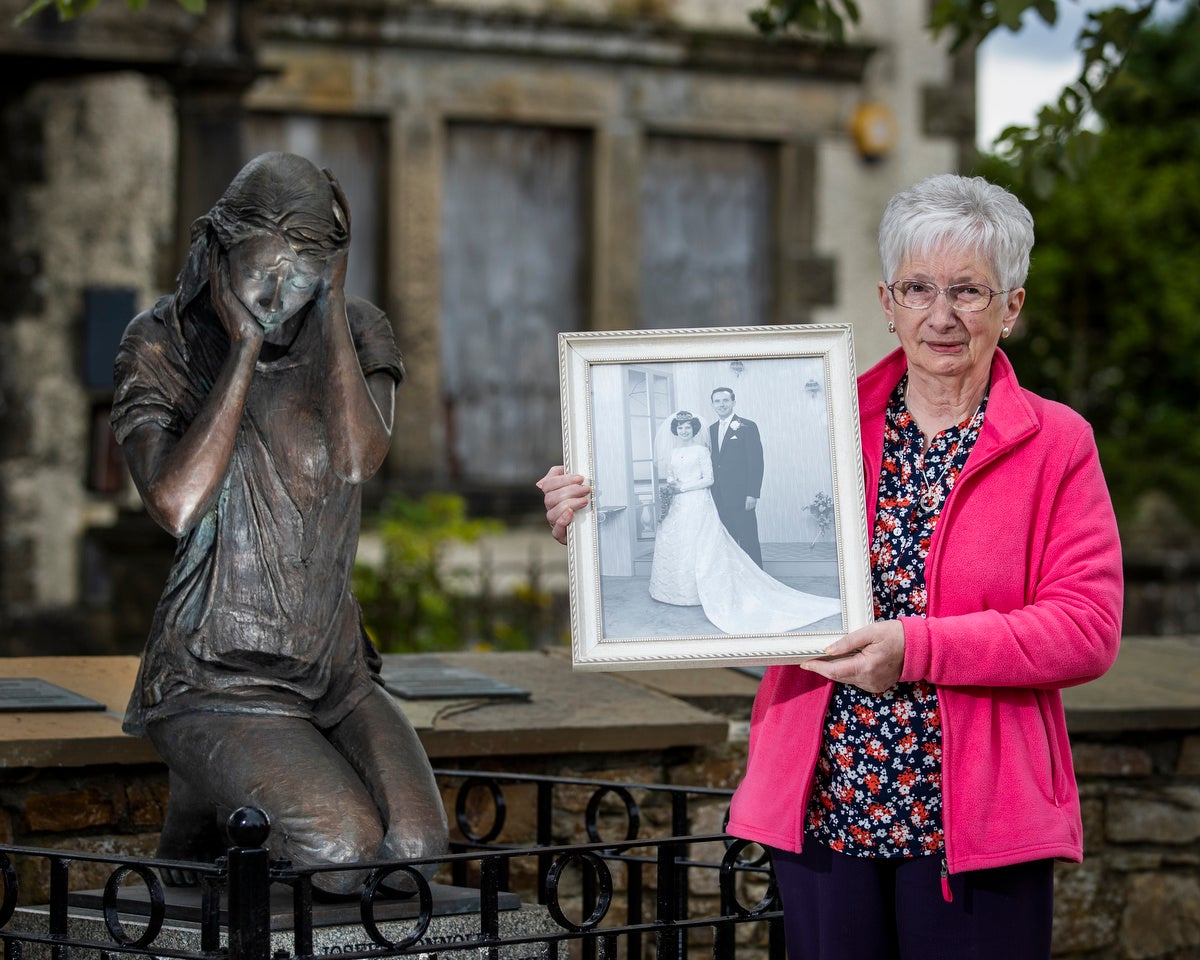Claudy bombing widow: Northern Ireland must never return to horror of 1972
Nine people died when three IRA car bombs devastated the quiet Co Londonderry village on July 31 1972.

Your support helps us to tell the story
From reproductive rights to climate change to Big Tech, The Independent is on the ground when the story is developing. Whether it's investigating the financials of Elon Musk's pro-Trump PAC or producing our latest documentary, 'The A Word', which shines a light on the American women fighting for reproductive rights, we know how important it is to parse out the facts from the messaging.
At such a critical moment in US history, we need reporters on the ground. Your donation allows us to keep sending journalists to speak to both sides of the story.
The Independent is trusted by Americans across the entire political spectrum. And unlike many other quality news outlets, we choose not to lock Americans out of our reporting and analysis with paywalls. We believe quality journalism should be available to everyone, paid for by those who can afford it.
Your support makes all the difference.A woman whose husband was killed in the bombing of Claudy 50 years ago has urged that Northern Ireland never goes back to its troubled past.
Nine people, Catholics and Protestants, were killed and 30 injured when three car bombs exploded in the quiet Co Londonderry village on July 31 1972.
The victims included nine-year-old Kathryn Eakin, who had been cleaning the windows of her family’s grocery business, Patrick Connolly, 15, and 16-year-old William Temple.
The adults killed were Artie Hone, 38, Joseph McCluskey, 39, Elizabeth McElhinney, 59, James McClelland, 65, Rose McLaughlin, 52, and David Miller, 60.
The attack was blamed on the Provisional IRA, although the group has never claimed it.
A cross-community service is to take place on Sunday with readings and hymns attended by the churches.
Mr Hone’s widow Anne Bradley told the PA news agency the day remains vivid in her memory.
She recalled how her husband had been in the village with their four-year-old daughter Michelle in the car.
“He went into the shop to get a message, and was walking back towards the car when the bomb went off,” she said.
“Michelle was OK, the roof of the car collapsed down on top of her but she just had a cut behind her ear. Her dress was covered in glass. She was very frightened but she doesn’t remember anything about it, which is good.
“I only lived about 200-300 yards from the village, I ran down, our son Paul was six, I took him with me and told him to stand at the intermediate school gates while I went down to see what was going on.
“It was just pandemonium down the street, glass and slates and stones.
“I met the headmaster of the school, he told me that Artie was injured and he was going to hospital, but he wouldn’t let me down to see him.
“It’s a small country village, it was the last thing you would expect.
“I had a hairdressing business down in the village, everybody got on so well, everyone supported everyone else.”
Mr Hone was fatally injured in the blast and died over a week later in hospital.
Ms Bradley recalled leaning down to whisper in his ear, ‘I’m here’, as she sat by his bed.
Thank God there are no bombs now, please God it'll never go back to that because that would be terrible if we ever have to live through that again
“He lived for 12 days but he never regained consciousness, it was all head injuries he had,” she said.
“I went into the hospital that evening and spoke into his ear, and I told him that I was there.
“It was good to have them (their children), without them it would have been a lot harder.”
No one has ever been convicted for the attack.
Ms Bradley said she does not see any hope of getting justice at this stage.
“It doesn’t bring people back, and I think at this stage now, I’m going to get on with the rest of my life and leave the people that did it to God,” she said.
“Claudy was always good, people always mixed well. Thank God there are no bombs now, please God it’ll never go back to that because that would be terrible if we ever have to live through that again.”